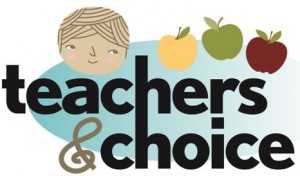The origins of the approach that’s driving one of Florida’s newest and most highly rated rural charter schools can be found 55 miles to the West, in Tallahassee.

At Godby High School in Leon County, Demetrius Rice helped transform a dusty wood shop into cutting edge classroom-slash-robotics lab, where he led a career academy that helped students build math and science skills while preparing them for careers in engineering – which at times involved building robots, piloting drones and operating 3-d printers.
“I was kind of in my own world in that room,” he said. “I was kind of like Bill Nye the Science Guy. (Other educators) would walk in and see things flying around and say, ‘thats cool.’”
It was cool, but he felt the program that thrived in one corner of Godby could be a model for an entire school. Couldn’t all students benefit from lessons that presented them with real-world problems to solve, and that allowed them to leave high school with skills that would be relevant later in life?
This year, he has a chance to try that approach. He’s now in his first year as principal and STEM director at James Madison Preparatory High School. Located in the heart of downtown Madison, a town of less than 3,000, the second-year school has created a new option in one of Florida’s smallest districts.
The school opened a little over a year ago. It was started by a group of parents who wanted a college-preparatory option for students in a district with only one public high school. Justin Davis, the chairman of JMPHS’ foundation, said the “stars aligned” when the board heard about Rice. He had experience leading new STEM programs and understood how to infuse a curriculum with skills students’ could apply in their professional lives.
The robots Rice’s students build are guided by algebraic equations. Their movements must be programmed based on the number of wheel rotations needed to travel a certain distance – which students must calculate using the circumference of a circle.
He said his time leading Godby’s career academies have shown him students can benefit when “they can see themselves solving a real problem” that reinforces a core academic subject.
He is not alone in that realization. Last year, lawmakers approved a major expansion of career education programs. The measure received support from educators and business groups alike, and created financial incentives for school districts and charters to provide more chances for students to earn industry certifications before they graduate.
Davis, the school’s board chairman, said the school’s approach is shaped less by the state’s new policies than from an expectation that students with graduate high school with useful skills – such as Microsoft certificates and more advanced credentials in fields like engineering and agricultural science. Because students are making a conscious decision to enroll, he said, the new school can expect more of them.
“It’s almost going to be a basic requirement at our school,” he said.
Rice began his career in the Air Force, where he worked with “automated dispensing systems,” the technology that became known as 3-D printing, which his students now use to perfect their robot designs. That experience has helped him set up labs that expose students to, for example, the same computer-aided drafting software a professional would use, so that “when they walk away they say, ‘I can do it for real.’”
Before the school year had even started, he was already arranging field trips and pursuing partnerships with manufacturers that have a presence in North Florida, like Nestle and Danfoss Turbocor, and nearby education institutions, like Florida State University’s MagLab and Tallahassee Community College’s Advanced Manufacturing Training Center.
“The best part of the experience will be when we get on that bus and go to different facilities, or go to colleges – and (students) can see themselves in that picture,” he said.



